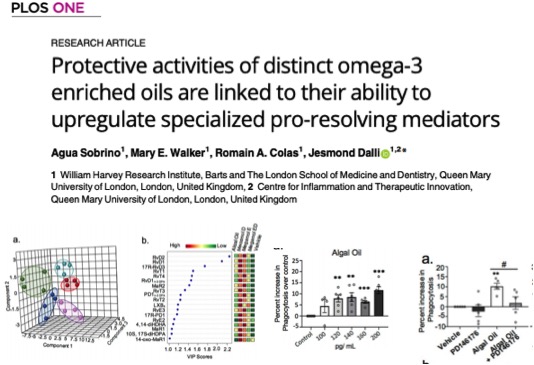Which biomarkers can be used to determine the ability of a specific supplement in controlling inflammation?
Indeed, several clinical studies using a range of omega-3 supplements have yielded conflicting results on their efficacy to reduce inflammation and regulate immune responses.
In this recent publication, Sobrino et al. focused on the evaluation of protective properties of four #Omega-3 enriched oils.
They report that the ability of a supplement to upregulate #SPM (specialized pro-resolving mediators) production is a robust indicator to evaluate its protective activities. But they also found that each oil displayed a unique bioactive profile in its ability to regulate macrophage responses in vitro and vascular inflammation in vivo. Overall, they showed that the abilities of a supplement in regulating immune responses are linked to its ability to upregulate SPM but also linked to its origin (i.e. algal, fish oil or plant-derived) and to its formulation (e.g. ethyl ester versus triglyceride form).
Thus, this study supports the utility of measuring SPM concentrations as potential prognostic markers in determining the efficacy of a given supplement to regulate inflammation. These results also reinforce the need for determining the pharmacodynamics of omega-3 supplements, given the distinct activity observed by each of the supplements tested in regulating key biological actions in the resolution of vascular inflammation.
More information about this article entitled "Protective activities of distinct omega-3 enriched oils are linked to their ability to upregulate specialized pro-resolving mediators" : click here




